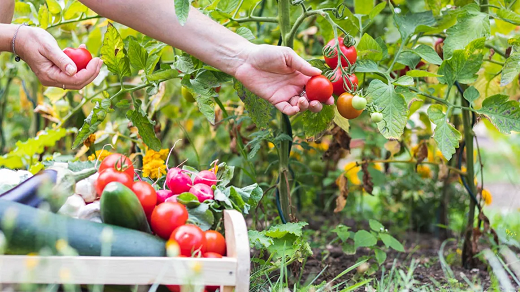Starting your own vegetable garden may seem challenging and unnecessary with fresh produce available year-round, but experts believe it’s worth the effort. Growing your own fruits and vegetables allows you to learn about what you eat, save money, and live sustainably through composting.
David Toht, author of *Backyard Homesteading*, shared that once the initial work of breaking ground is done, gardening becomes less labor-intensive and more rewarding. He describes the joy of harvesting fresh vegetables like snow peas and zucchini and enjoying the fruits of your labor.
Gardener Brian Brigantti, who started gardening during the pandemic, agrees. He believes growing your own food deepens appreciation for what you consume and ensures it’s all-natural and organic. Beyond food, gardening helps maintain physical health and provides a therapeutic experience. Use a pitchfork to poke holes and gently lift the soil to aerate it, creating air gaps.
Use a pitchfork to poke holes and gently lift the soil to aerate it, creating air gaps.
For beginners, the key is choosing a suitable space that receives at least six hours of sunlight. If sunlight is limited, some plants can thrive in shaded areas. Brigantti recommends the no-till gardening method, which involves placing cardboard over the garden area to suppress weeds, then layering soil and compost on top before planting.
Toht also suggests double digging for better soil aeration, which helps plants grow. He recommends starting with easy-to-grow plants like kale, carrots, and spinach in spring, and tomatoes and peppers in summer. To ensure a successful garden, proper watering is crucial, especially during hot weather.
Ultimately, gardening is a continuous learning process. With patience, dedication, and the right techniques, anyone can create a thriving vegetable garden while enjoying the many benefits it brings.







